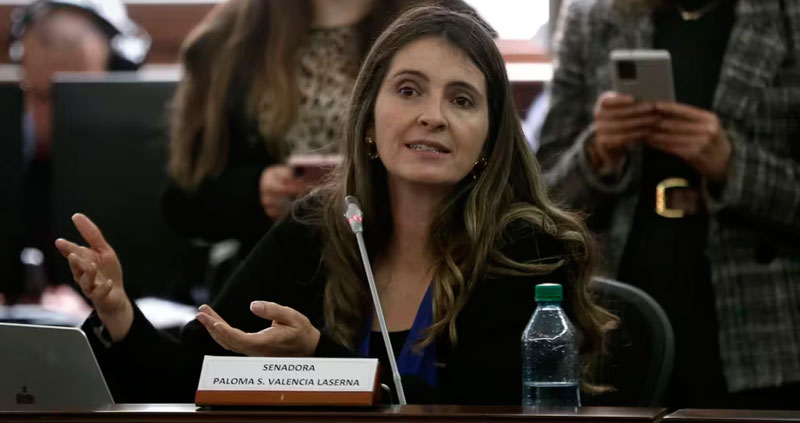Paloma Valencia, in her most recent opinion column, addresses the controversial aspects of the pension reform proposed by the Petro government, highlighting as a positive point the limitation of subsidies for high pensions, a measure that could justify its approval. However, she points out that, despite this benefit, there are other components of the project that raise concerns, suggesting that these negative elements could outweigh the proposed advantages, and calling into question the appropriateness of the reform as a whole.
The text also examines the current structure of pension savings in Colombia, which amount to 405 billion pesos and are managed by private funds. As detailed, these savings are distributed in investments that include 35% in public fixed income, 23% in foreign variable income, 22% in private funds, both external and internal, and the remaining 20% between local and external fixed income, in addition to demand deposits.
Valencia highlighted with respect to the pension reform proposal that, under the legislation, the president would have the authority to define how these resources are invested.
To the latter, he added that: “It is easy to imagine Petro wanting to over-invest in public debt and, as he has said, restricting investments abroad. This government interference could lead us to lose the autonomy of the funds and convert them simply into a vehicle to provide new resources to the government. Thus significantly increasing the risk for pensioners’ resources.”
Valencia also questioned a possible allocation of a financial flow, greater than 250 billion pesos until the year 2070, directly at the disposal of governments. This reform would grant the current government immediate access to 4.2 billion pesos during the first year, and 5.2 billion in the second year. The fundamental change lies in the replacement of certain expenses, which are currently covered by the national budget, with funds coming directly from the pension savings of Colombian citizens, according to Valencia’s words.
Furthermore, he added that: “Very few resources will be saved. And of course there are many doubts about these resources in the hands of the State. For this reason, in the alternative presentation it is proposed that the “Contributory Pillar Savings Fund” be controlled by the Banco de la República and not by Colpensiones as the government intends.”
In her analysis, Paloma Valencia speaks regarding current pension savings in the context of the proposed reform. Despite ensuring that the 405 billion pesos of savings will not be transferred directly to the national government, the reform gives it the power to decide how and where these funds should be invested.
In the text, two articles of the reform are cited by Valencia: one that establishes that the resources of the system will be invested as determined by the National Government, and another that specifies that the resources of individual accounts will be invested in Pension Funds under conditions and characteristics also defined by the Government. This provision opens the door for the government to instruct pension funds to channel all savings into public debt, thus seeking a form of financing.
On the other hand, he explained that: “There is another extraordinary power within the bill. The indigenous communities will establish with the national government the weeks, years and value of the pensions they will receive. This is unequal with the rest of the population. The reform did not provide for prior consultation, which is why the article itself is unconstitutional.”
Finally, he concluded by saying: “The remuneration of private funds is also not clear. The reform establishes 1% on the contribution – today it is on average 0.6% -. However, it converts it to 0% over time, and then states that the funds will earn on balances. The reform does not establish when it will become 0%, nor when they will begin to earn from balances, much less what percentage it will be on the balances. This remains an extraordinary power for the government. This decision must be technical, neither too low that it kills the funds, nor too high that it threatens the capital of the affiliates.” With Infobae
